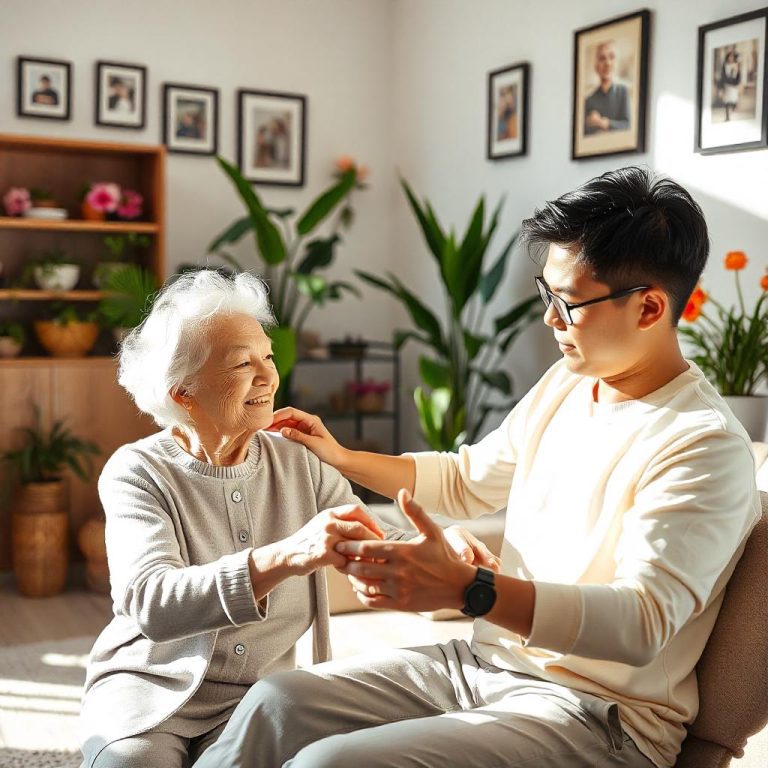As elderly parents age, they may require assistance with daily activities, medical care, and companionship. Caregiver services can be crucial for ensuring that parents receive the care they need while maintaining their dignity and independence. Below are the types of caregiver services available for elderly parents, along with their benefits.
1. Personal Care Assistance
Personal care assistance helps seniors with activities of daily living (ADLs), including:
- Bathing and Grooming: Assistance with showering, grooming, and personal hygiene.
- Dressing and Undressing: Helping parents select appropriate clothes and assist them in dressing.
- Mobility Assistance: Supporting parents with walking, transferring from a bed to a chair, or using mobility aids.
- Toileting: Helping with bathroom needs to ensure hygiene and comfort.
These services are especially helpful for seniors who have mobility issues or cognitive impairments, such as dementia.
2. Companion Care
Companion caregivers provide emotional support, helping combat loneliness and offering social interaction. They may:
- Engage in Conversations: Keeping elderly parents mentally stimulated with regular conversation.
- Participate in Activities: Helping with hobbies or taking walks, encouraging cognitive function and mental health.
- Provide Transportation: Assisting with errands like shopping, going to appointments, or social outings.
- Monitor Emotional Well-being: Being alert to signs of depression or anxiety and communicating them to family members or healthcare providers.
Companion care can significantly improve a senior’s quality of life and provide emotional relief to family caregivers.
3. Nursing and Medical Care
For elderly parents who require medical care at home, skilled nursing services can be arranged:
- Medication Management: Ensuring proper medication administration and monitoring for side effects.
- Wound Care: Providing care for wounds, pressure ulcers, or post-surgical care.
- Chronic Disease Management: Assisting with the management of chronic conditions such as diabetes, heart disease, or COPD.
- Monitoring Vital Signs: Checking blood pressure, temperature, heart rate, and other vitals to assess the overall health condition.
- IV Therapy: Administering intravenous medications or fluids when required.
Skilled nurses are trained to handle complex health needs and can offer support to prevent hospital readmissions.
4. Respite Care
Respite care services provide temporary relief to primary family caregivers. This allows family members to take breaks, run errands, or tend to personal matters, knowing that their loved one is well taken care of. These services can be:
- Hourly or Live-in Care: A caregiver can visit for a few hours, or a live-in caregiver can provide full-time care for a period of time.
- Scheduled Breaks: Family caregivers can schedule respite care regularly to ensure they don’t become overwhelmed.
Respite care ensures that family caregivers maintain their well-being while also providing consistent care for their elderly parents.
5. Alzheimer’s and Dementia Care
Specialized care is often necessary for elderly parents dealing with Alzheimer’s disease or other forms of dementia:
- Cognitive Stimulation: Engaging activities designed to help maintain cognitive function and improve memory.
- Safety Monitoring: Ensuring that the home environment is safe and reducing the risk of wandering or accidents.
- Behavioral Support: Managing challenging behaviors associated with dementia, such as aggression or confusion.
- Daily Routine Assistance: Helping maintain a structured routine, which is beneficial for individuals with cognitive impairments.
Dementia caregivers are trained to deal with the unique challenges of these conditions, providing safety, structure, and comfort to parents with Alzheimer’s or dementia.
6. Palliative and Hospice Care
For elderly parents with serious, life-limiting illnesses, palliative and hospice care services are designed to provide comfort and manage pain:
- Pain Management: Ensuring comfort by managing pain and other symptoms associated with end-of-life conditions.
- Emotional and Spiritual Support: Providing counseling and support for the patient and family members.
- End-of-life Planning: Helping families with decisions about care preferences, living wills, and advance directives.
These services offer compassionate support for families facing terminal conditions and help ensure dignity during the final stages of life.
7. Homemaker Services
Homemaker services help seniors with household tasks, ensuring that their living environment remains clean and comfortable:
- Cleaning and Tidying: Performing light housekeeping duties, such as laundry, dishwashing, vacuuming, and dusting.
- Meal Preparation: Preparing nutritious meals based on the senior’s dietary needs.
- Grocery Shopping: Helping with shopping for groceries or other essentials.
- Errands: Running errands like picking up prescriptions or going to the post office.
Homemaker services are essential for seniors who are unable to maintain their household but want to remain in their homes.
8. End-of-Life Care
End-of-life caregiving focuses on providing dignity and comfort during a senior’s final days:
- Hospice Care: A specialized form of care for those in the final stages of life, focusing on comfort, symptom relief, and emotional support.
- Bereavement Support: Providing counseling and support to family members after the loss of their loved one.
End-of-life caregivers work closely with families to ensure that the final days are as peaceful and comfortable as possible.
How to Find Caregiver Services for Elderly Parents
- Home Care Agencies: Many agencies offer a range of caregiver services, from personal care to medical and respite care. Research agencies that are licensed and have a good reputation.
- Independent Caregivers: Hiring an independent caregiver can be a more cost-effective option. You can find caregivers through local job boards, online platforms, or personal referrals. Be sure to thoroughly vet and check references.
- Medicare and Medicaid: If your elderly parent qualifies, Medicare and Medicaid may cover some caregiver services, particularly medical care.
- Veteran’s Benefits: Veterans and their spouses may be eligible for caregiver services through VA programs.
- Community Resources: Non-profit organizations and senior centers often offer caregiver referrals or low-cost options for seniors in need of care.






